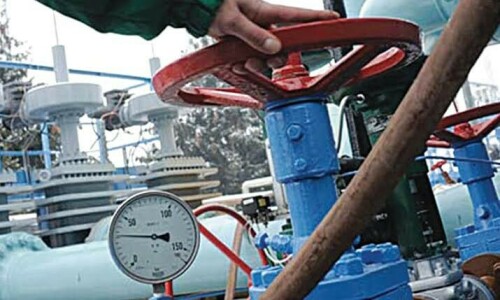KARACHI, Jan 31: Leprosy can prove to be less harmful and treated easily if diagnosed at earlier stages. Otherwise, the treatment of this ailment is very expensive and of a very long duration.
This was stated by the founder of the Marie Adelaide Leprosy Centre (MALC), Madam Ruth Pfau, while speaking at a seminar on infectious diseases held in connection with the World Leprosy Day organised by the Dow University of Health Sciences (DUHS) held here at the Arag auditorium of the Dow Medical College on Thursday.
Madam Pfau cautioned that if any person found any kind of spot on the skin or irritation of any kind, which might be leprosy, he/she should contact a physician without any delay.
The DUHS vice-chancellor, Dr Masood Hameed Khan, said that about half of the population of our country suffered from various kinds of diseases including hypertension, depression, diabetes, hepatitis B and C and others.
He said that health education was a must to raise awareness about tuberculosis, leprosy and other infectious diseases, and the media could also play a vital role in this regard.
In order to create awareness about various infectious diseases, the DUHS would soon start an FM radio station, he informed the audience.
Since vaccines were imported, he said, immunisation was very expensive in Pakistan. He said that the DUHS had decided to import biotechnology to prepare vaccines in the country.
Dr Mutahir Zia of Marie Adelaide Leprosy Centre (MALC) said that in Pakistan around 600 new leprosy cases were detected every year. He said patients were treated through chemotherapy, physiotherapy, surgery and medicines.
“Through multi-drug therapy suggested by the Word Health Organisation (WHO), its treatment takes 6 to 24 months. Previously it was completely treated in 10 years”, he said. In 2006, 481 leprosy cases were detected in Pakistan, of them 293 belonged to Sindh.
The chairman of Community Medicine, Aga Khan University Hospital (AKUH), Prof Gregory Pappas, said that Pakistan was facing great challenges in the form of various infectious diseases, including dengue, HIV/ Aids and influenza. He said that 20 per cent of all the HIV patients belonged to Karachi.
Prof Khalid Mehmood, Dr Qutub Kakar, Dr Abu Talib, Prof Javed Khan and the principal of the Dow Medical College, Prof Salahuddin Afsar, also spoke.
—PPI












































Dear visitor, the comments section is undergoing an overhaul and will return soon.